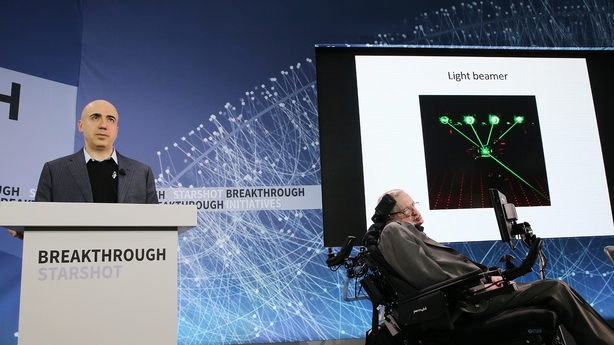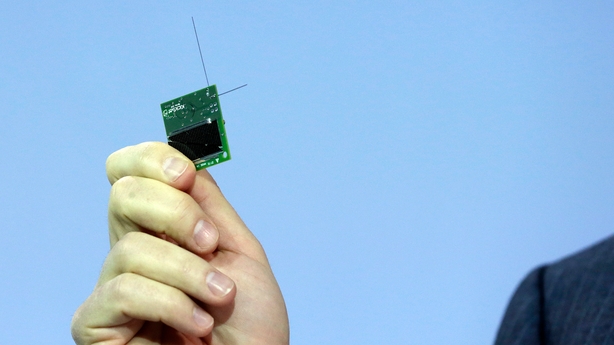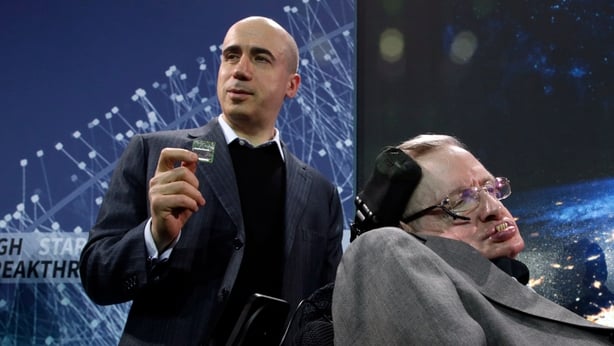Physicist Stephen Hawking, Facebook founder Mark Zuckerberg and Russian internet billionaire Yuri Milner have announced a project that could send microscopic spaceships to hunt for extraterrestrial life in the far reaches of space.
The $100 million project, known as Breakthrough Starshot, will examine the possibility of sending a host of tiny spacecraft far beyond the boundaries of our solar system to Earth's nearest neighbour, the Alpha Centauri star system.
The project aims to find out whether the "nanocraft", each weighing far less than an ounce, could fly at a fifth of the speed of light and capture images of possible planets and other scientific data.
Current spacecraft would take around 30,000 years to get to Alpha Centauri, which is more than 40 trillion km or 4.37 light years away.
But the nanocraft, powered by a sail pushed by a light beam, could potentially travel the distance over 1,000 times faster and make the journey in 20 years.
The Starshot concept involves creating a tiny robotic spacecraft, no larger than a mobile phone chip, which would carry cameras, thrusters, a power supply and navigation and communication equipment.
Once at their destination they would send back images of any planets and scientific data via an on-board laser communications system, and the same beam of light that launched them would receive the information - taking over four years to get home.
Years of research and development stand in the way before the first spacecraft could be launched to other stars.
But Mr Milner believes the nanocraft could eventually be mass-produced at the cost of an iPhone and launched for less than $1 million.
The Breakthrough Initiatives projects are being financed by Mr Milner, who made his fortune through investments in technology companies such as Facebook.
He has harnessed the innovation of Silicon Valley and brought together top scientists for his Breakthrough Foundation, funding projects that governments decide may be too ambitious.



Speaking at the One World Observatory in New York, Prof Hawking, who is on the board of the Breakthrough Starshot initiative, said: "What makes human beings unique, there are many theories.
"Some say it's language or tools, others say it's logical reasoning. They obviously haven't met many humans. I believe what makes us unique is transcending our limits.
"Gravity pins us to the ground but I just flew to America. I lost my voice but I can still speak thanks to my voice synthesiser. How do we transcend these limits? With our minds and our machines.
"The limit that confronts us now is the great void between us and the stars, but now we can transcend it."
Astronomers estimate there is a reasonable chance of an Earth-like planet existing in the "habitable zones" of Alpha Centauri's three-star system.

